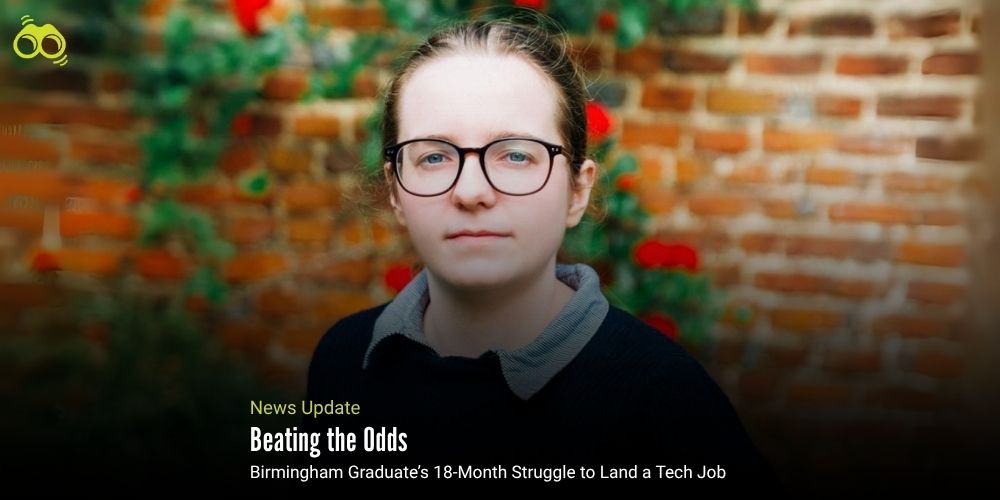Graduate Disillusionment and the Responsibility of Employers
The Unseen Struggle: Graduate Talent Lost in a No-Feedback Job Market
The experiences of recent graduates increasingly highlight a concerning disconnect between academic qualifications and real-world employment opportunities. This disparity is reflected in the journey of 25-year-old Deanna Woodhouse-Hawkins, a computing and IT graduate from Birmingham. After completing her degree at the Open University, she reportedly submitted over 1,200 job applications across 18 months, yet received only two invitations for interviews.
Despite tailoring her CVs for each role and completing multiple employer assessments, Deanna frequently encountered silence. On the rare occasions she did receive responses, they were often impersonal rejections, which exacerbated her frustration. In an interview with the BBC, she described the experience as profoundly disheartening, underscoring the emotional strain of repeated rejection with minimal guidance or feedback.
Residing in Quinton, Deanna eventually secured a role as a Junior Python Developer at Global Telecoms Networks, where she completed her probation period. However, during her lengthy job search, she faced significant mental health challenges and relied on Universal Credit for financial support. Her trajectory changed with the assistance of a West Midlands foundation and Generation UK, whose training programme helped her regain confidence. From October 2024 to January, she attended a bootcamp that enhanced her CV, improved her interview skills, and addressed key technical gaps left by her formal education.
Deanna, who experiences anxiety and depression, noted that the prolonged silence from employers worsened her mental health. Despite investing substantial effort into every application, she was often left feeling "ghosted", with vague or generic responses offering little insight or encouragement. Kelsey Flynn, Head of Impact at Generation UK, remarked that Deanna’s story is regrettably common. She pointed to rising youth unemployment as an alarming trend and emphasised that, although many young people are eager to build successful careers, they frequently lack the tailored support and practical training needed to succeed in competitive markets. Deanna's experience is a stark reminder that bridging the gap between education and employment requires not only qualifications but also structured support, empathy, and inclusive career development pathways.
Editor’s Note
The story of Deanna Woodhouse-Hawkins is a powerful reminder of the silent struggle many young graduates endure after finishing their studies. Despite gaining a degree and showing persistence, Deanna’s experience of applying for over a thousand jobs with little to no response is deeply troubling. It reflects a wider failure in how we transition young people from education into employment. When smart, motivated individuals are met with silence instead of opportunity, it damages not just their confidence but also our belief in fair access to careers. This is not a matter of individual effort; it is a systemic issue. Support programmes like Generation UK prove that the right guidance and training can make a meaningful difference. But relying on isolated interventions isn’t enough.
Skoobuzz asserts that employers must recognise the importance of offering constructive feedback, and institutions need to prepare students not only with knowledge but also with practical skills and mental health support. We must all do better to ensure that our graduates are seen, heard, and truly supported.














0 Comments (Please Login To Continue)